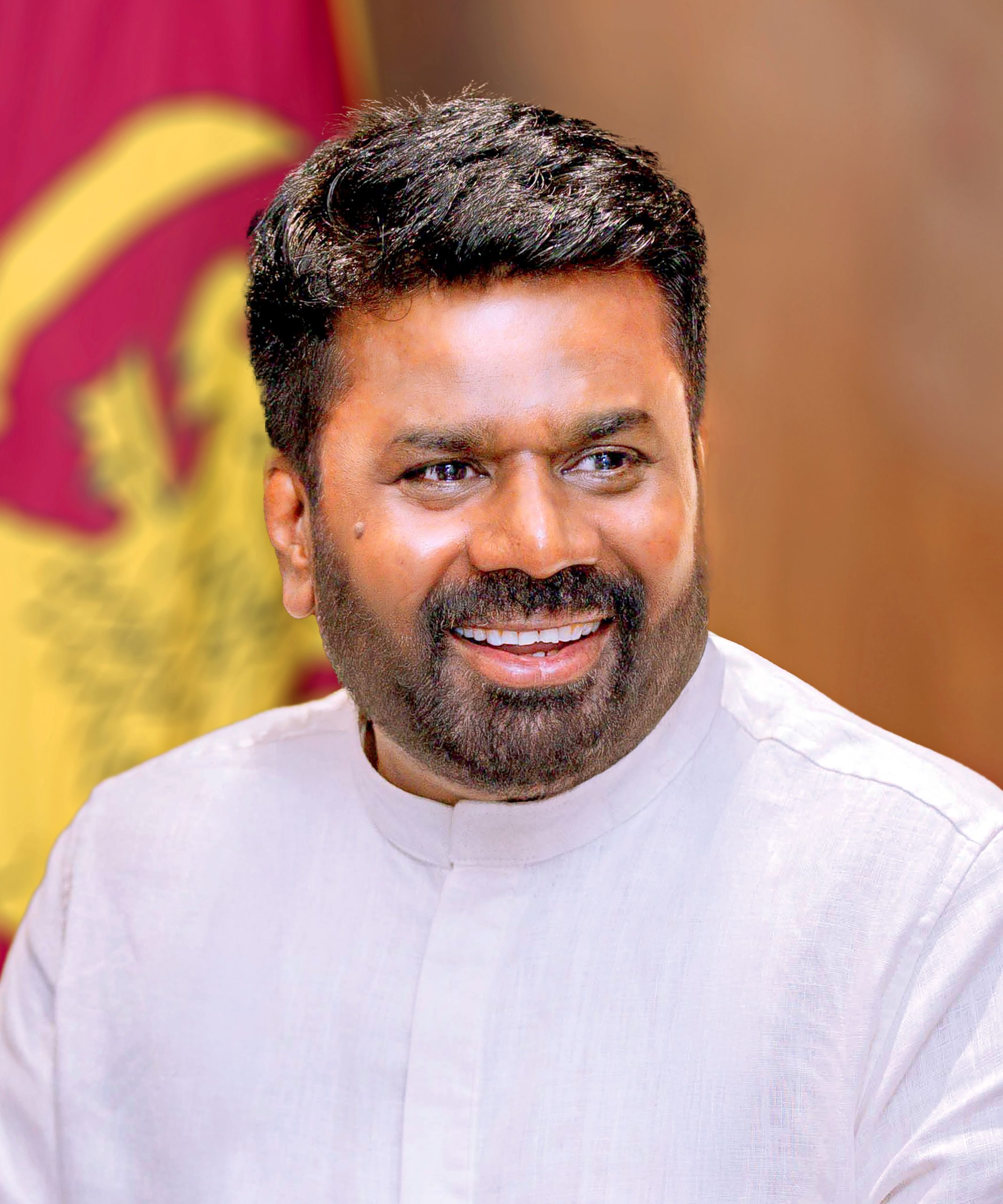
Dissanayake Mudyanselage Anura Kumara Dissanayake was born on November 24, 1968, in the village of Dewahuwa, Matale, to Dissanayake Mudyanselage Ranbanda, a surveyor’s
assistant, and Seelawathi. He is the second child in the family.
Dissanayake began his education at Thambuttegama Primary School and later attended Thambuttegama Madhya Maha Vidyalaya, where he sat for the A-Level exams in the ScienceMathematics stream. In 1992, he qualified for university and was accepted into the Faculty of Science at the University of Kelaniya. During his time at university, he was actively involved in social and political activities, including serving as president of the University Buddhist Association. He graduated with a Bachelor of Science degree in 1995.
Anura Kumara Dissanayake is widely regarded as one of the most dynamic and prominent political leaders to emerge in Sri Lanka, largely due to his rise from outside the traditional
political elite. He navigated numerous challenges within the progressive and populist political movement to make his mark on the national stage. His political journey began as a student,
becoming active in 1987 when he joined the Socialist Students’ Union and participated in widespread protests against the Indo-Lanka Accord signed by the government at the time.
After the Janatha Vimukthi Peramuna (JVP) re-emerged from significant state repression, Dissanayake returned to active politics in 1993, establishing himself as a key student activist
during his university years. With unwavering dedication, he worked to rebuild the Socialist Students’ Union, affiliated with the JVP, gaining widespread popularity across the university
community under the name “Aravinda.”
In 1997, his efforts were recognized when he was appointed National Organizer of the Socialist Students’ Union, marking a pivotal moment in his political career. The same year, he was elected to the Central Committee of the JVP, and in 1998, he was further elevated to the party’s Political
Bureau, cementing his role in the leadership of the party.
In the 1999 provincial council elections, Anura Kumara Dissanayake contested for the Central Provincial Council as the chief ministerial candidate for the Janata Vimukti Peramuna, marking his first significant foray into mass politics. He was elected to Parliament for the first time in the 2000 general election, running from the national list.
In 2001, Dissanayake played a pivotal role in the adoption of the 17th Constitution, successfully influencing a weakened government to implement a probationary program that included populist measures such as reducing farmers’ loans. In 2004, he was elected to Parliament representing the Kurunegala district, receiving the highest number of preferential votes. He was widely recognized for his service as Minister of Agriculture, Lands, Irrigation, and Livestock in the United People’s Freedom Alliance government established that same year. However, the Janata Vimukti Peramuna withdrew from the coalition government, citing concerns that the establishment of a Tsunami Relief Board would exacerbate separatism.
In 2008, Dissanayake became the leader of the JVP parliamentary group. He was re-elected to Parliament in 2010 as a member of the National List, representing the Democratic National Alliance, which includes the Janatha Vimukthi Peramuna.
His political journey took a significant turn when he was elected as the leader of the Janatha Vimukthi Peramuna during the 7th National Congress on February 2, 2014. Under his leadership, the party entered a new phase of popularization. He contested the 2015 general election from the Colombo district, securing a seat in Parliament. Dissanayake served as the chief organizer of the opposition in the Sri Lankan Parliament from 2015 until December 14, 2018.
In August 2019, he helped establish a new political movement called the National People’s Power, uniting various political parties, civil organizations, and activists, including the Janatha
Vimukti Peramuna. This initiative quickly gained support from citizens disenchanted with traditional political parties.
Anura Kumara Dissanayake, the candidate of the Jathika Jana Balawegaya (NPP) in the 2019 presidential election, garnered 3.16% of the votes, totaling 418,553 in a highly competitive race. He was subsequently re-elected to Parliament in the 2020 general election.
In response to the ongoing economic crisis, Dissanayake played a crucial role in transforming the Jathika Jana Balawegaya (NPP) into the largest progressive mass movement in Sri Lankan political history. He demonstrated remarkable courage and dedication in rallying support around this initiative. On December 20, 2021, at the inaugural National Conference of the National People’s Power, he was elected as its leader, with a mission to unite progressive individuals and foster collaboration within the movement.
Dissanayake contested as the Jathika Jana Balawegaya (NPP) candidate for the 2024 presidential election. He has articulated a vision for a new renaissance for the nation, promising to introduce a new political culture that addresses the challenges faced by the people amid the economic crisis. His leadership is characterized by a strong political vision, sound decision-making, compelling communication skills, empathy, adaptability, and eloquence, which have resonated with the electorate. The public’s response indicates that they understand and support his message.